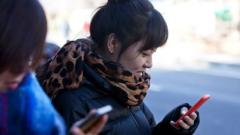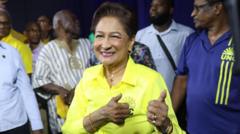In the past five months, South Korea's political landscape has seen dramatic shifts, putting the future of its democracy into question. After the impeachment of the former president, who had enforced martial law, the country has cycled through three acting presidents, each facing escalating challenges. With the upcoming election looming on June 3, the situation remains precarious.
South Korea Faces Governance Crisis Amid Political Turmoil

South Korea Faces Governance Crisis Amid Political Turmoil
As the nation prepares for a presidential election, doubts and uncertainty loom over South Korea's democratic future.
Lee Jae-myung, the Democratic Party's leading candidate, faces legal uncertainties that could jeopardize his candidacy. At the same time, former prime minister Han Duck-soo, who recently resigned, is making a presidential bid but needs the backing of the fragmented People Power Party to advance. Han claims he can bridge the deep political divides that have paralyzed governance while navigating foreign relations fraught with tension, particularly with the U.S. administration. As South Korea grapples with these crises, the nation stands at a crossroads, raising profound questions about its democratic resilience amidst turmoil.






















